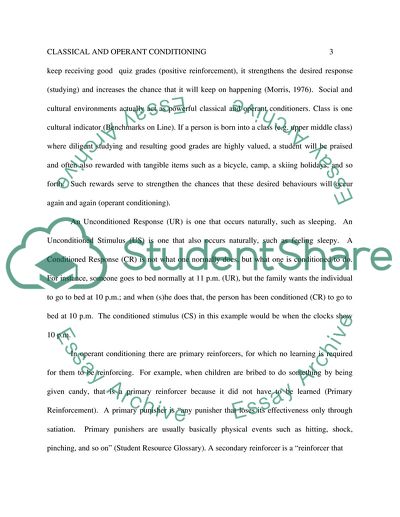Cite this document
(“Classical and Operant Conditioning Essay Example | Topics and Well Written Essays - 750 words - 3”, n.d.)
Retrieved de https://studentshare.org/anthropology/1443126-classical-and-operant-conditioning
Retrieved de https://studentshare.org/anthropology/1443126-classical-and-operant-conditioning
(Classical and Operant Conditioning Essay Example | Topics and Well Written Essays - 750 Words - 3)
https://studentshare.org/anthropology/1443126-classical-and-operant-conditioning.
https://studentshare.org/anthropology/1443126-classical-and-operant-conditioning.
“Classical and Operant Conditioning Essay Example | Topics and Well Written Essays - 750 Words - 3”, n.d. https://studentshare.org/anthropology/1443126-classical-and-operant-conditioning.


